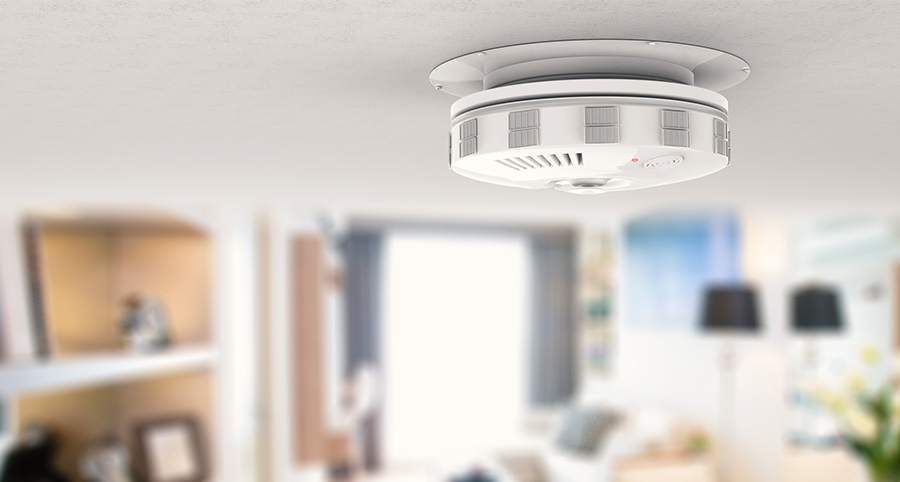Are there differences between regular smoke detectors vs. monitored fire alarms in Lansing?

In the Lansing smoke detector vs. monitored fire alarm discussion, it's clear that a monitored fire alarm is the superior alternative"> for your family. Smoke detectors are an essential first step in guarding your residence from a dangerous blaze, but they have some notable shortcomings. Conversely, monitored fire alarms offer more ways to identify a potentially dangerous situation and may notify your support team when disaster strikes. Pairing your fire alarms to a security system also brings out various extra advantages that your regular smoke detectors could only wish for.
Regular smoke alarms can only do one thing
Fire safety is a crucial consideration, and smoke detectors take on a vital part in keeping your family safe. Despite that fact, smoke detectors have their drawbacks. To illustrate, they are only able to react to smoke, not high temps. If there is an emergency in your house, you might not be warned before the smoke ascends to the smoke detector. While there are some other telltale indications of fire -- such as a sharp heat increase -- if there’s a lack of smoke, you won’t have a triggered smoke detector.
Additionally, smoke detectors only sound the alarm when they encounter ample smoke. When a fire begins slowly, you may not be warned until the flames are out of control. Some smoke detectors employ dual sensors, which means they will recognize smoke from both roaring flames and a more gradual burn. If they start beeping, it's up to the resident to call first responders after they safely leave the premises.
Monitored fire alarms provide more value than ordinary smoke detectors
Although they have a similar appearance to traditional smoke detectors, monitored fire alarms offer more benefits. When integrated to a total home security installation, they are able to:
- Discern fire with dual-sensor smoke detection: Similar to an ordinary smoke detector, your monitored device will engage from an intense fire or one that has just started smoking. It will sound a high-volume beeping when it recognizes danger.
- Identify fire with a rapid temperature increase: A monitored fire alarm can also go off if it notices an abnormal fluctuation in temperature. Frequently, heat arrives prior to smoke. Added means to uncover a fire equates to extra ways to protect your loved ones.
- Notifies your dedicated monitoring agents: Fires will occur when you are home or away. Either way, your fire alarms will alert your monitoring specialists, who can swiftly contact first responders. When seconds count, it's great to realize that somebody is constantly watching over your home.
- Pairs with home automation: Even though the main job of a fire alarm is to detect dangerous situations and call for help, it will also join forces with other automated components. To illustrate, a activated alarm could prompt your system to start the exhaust fan to slow the fire or initiate smart light bulbs so you can locate the best path out of the property.
Your monitored fire alarms are part of a complete smart home
The simplest way to optimize your fire alarms is to pair them with a Vivint home security system. Consult with a Vivint expert today and discover the most suitable smart home for your needs. Diall (517) 760-8950 or submit the following form to begin.